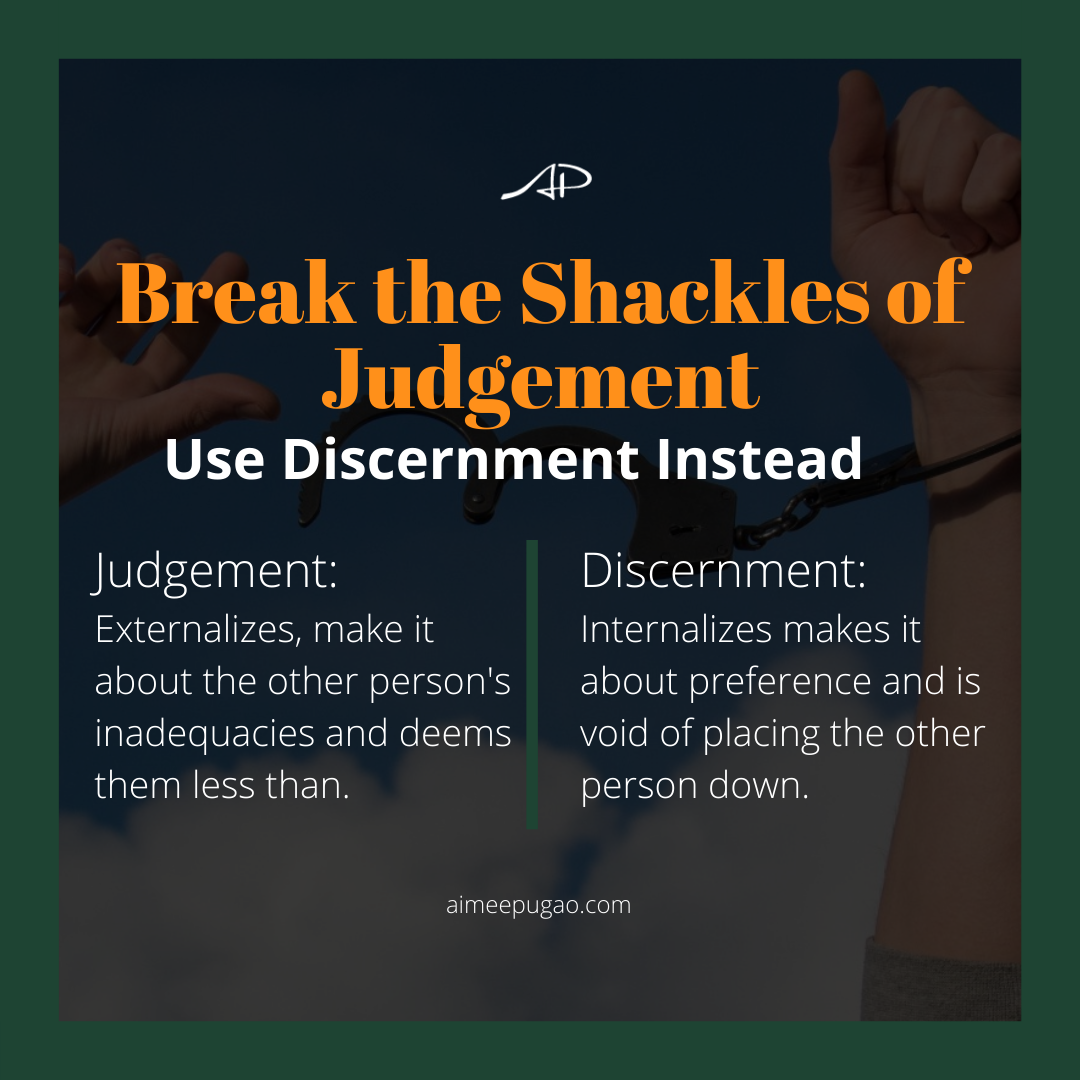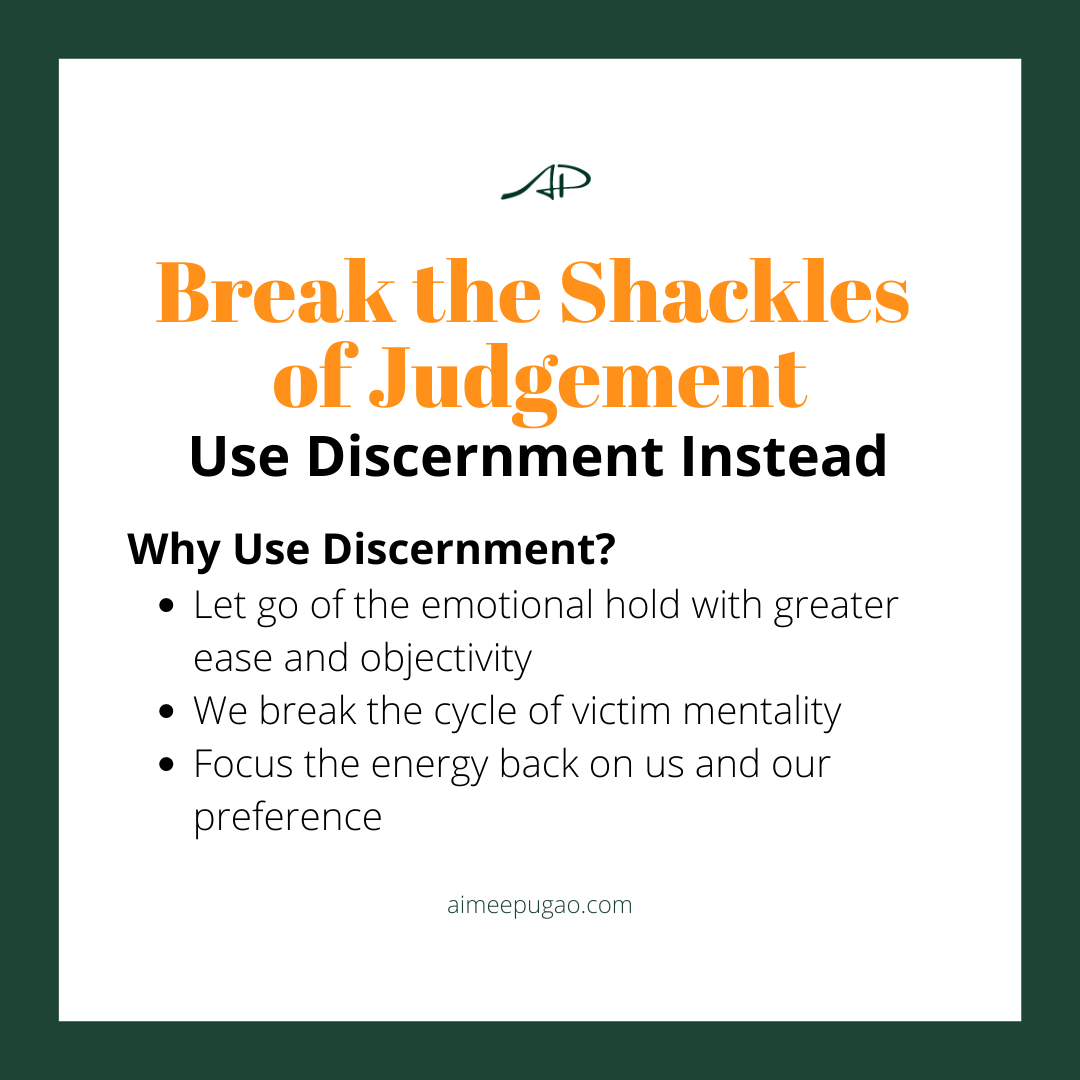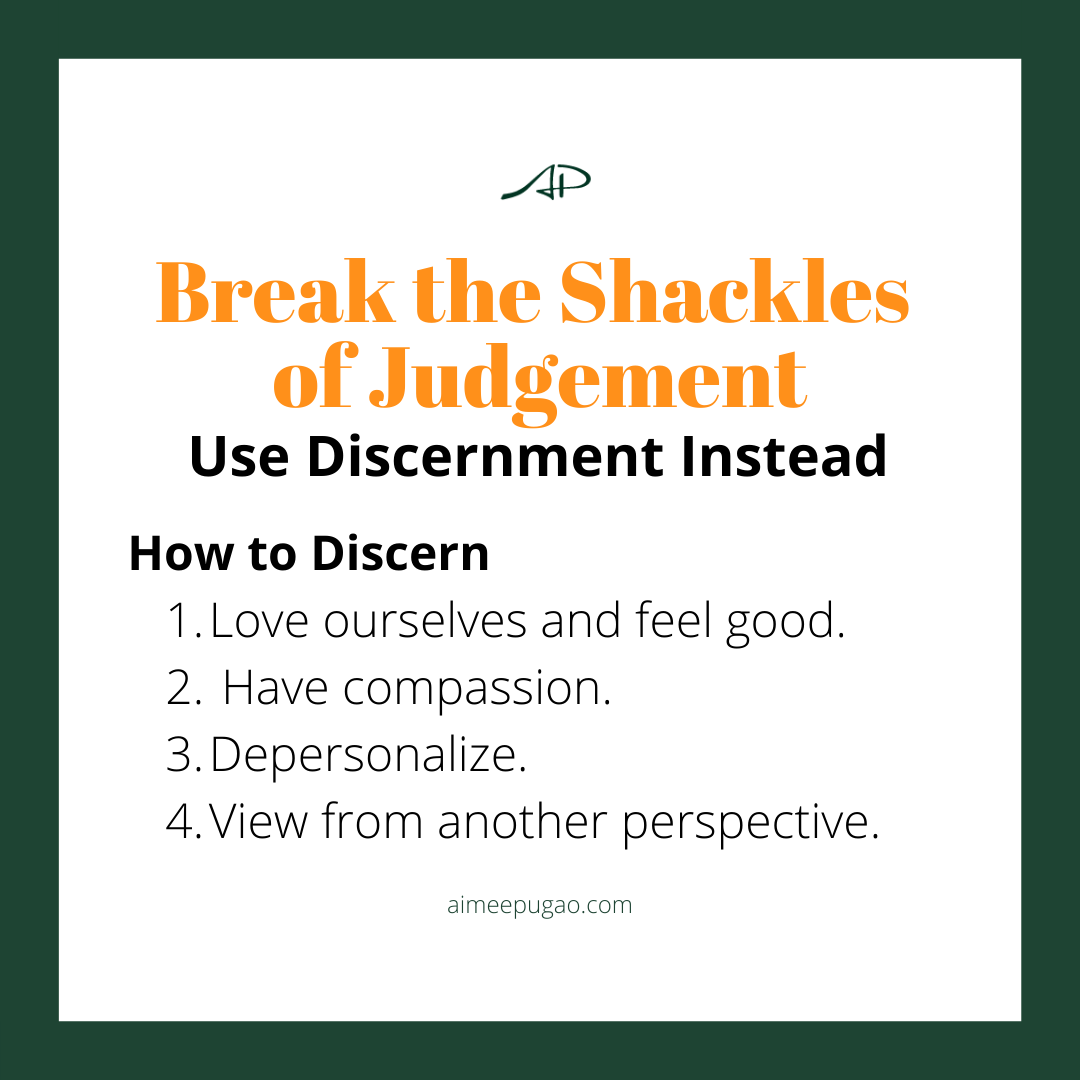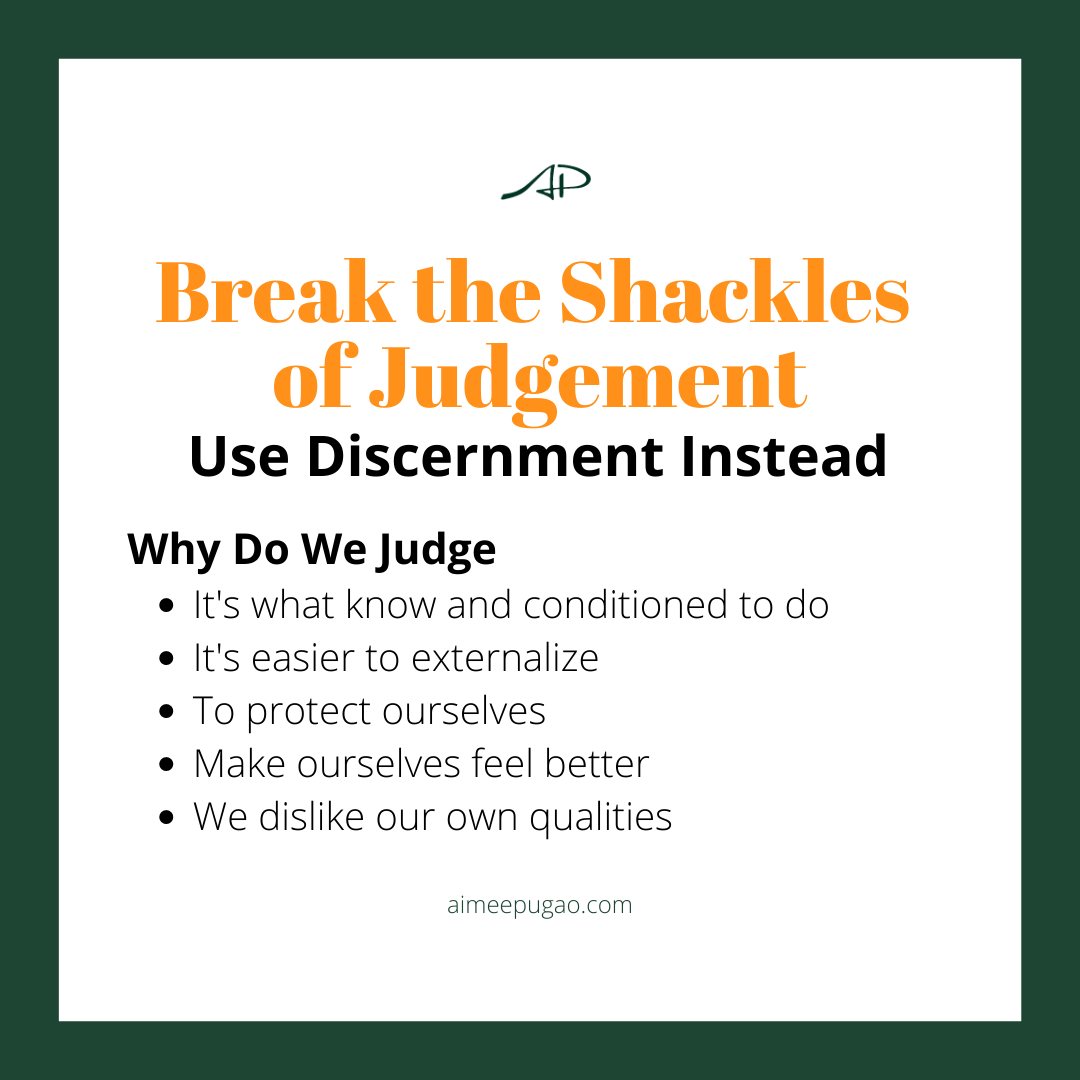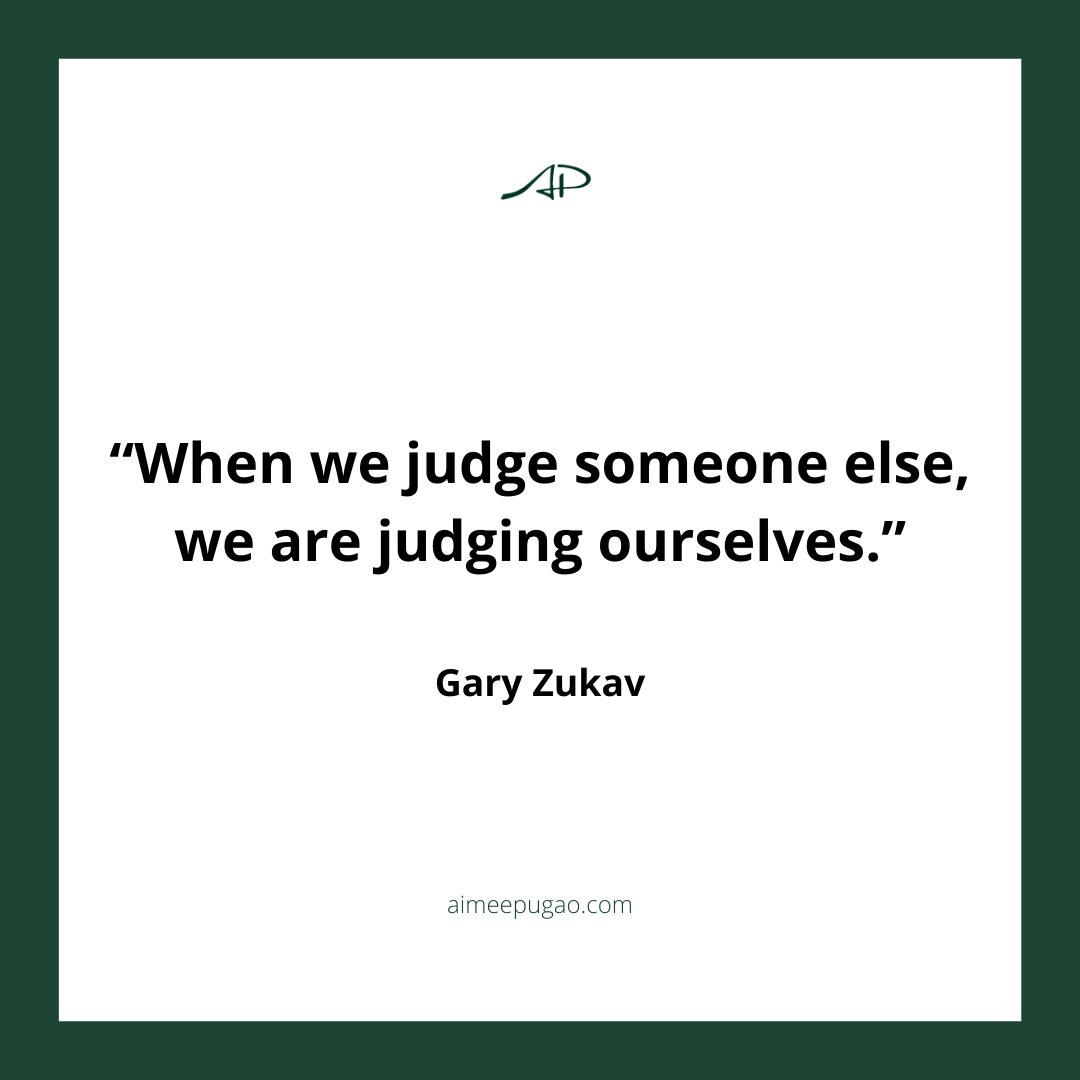We use judgement and discernment interchangeably, and to most people, they are the same. However, the essence of the two words differs. Both will notice appropriate or inappropriate behaviour… the difference is judgement implies condemnation, while discernment shows compassion.
We are all mixtures of good and bad and do things that are right and wrong. It’s not always a simple task to decide how we want to live our lives and who we have in them. It can be difficult to determine if the decisions we make are beneficial or harmful for us, or the people we want in our lives are compatible or incompatible. No matter what we decide, we all have intrinsic value and our decisions do not reflect our worth.
What does Judgement and Discernment look like?
Judgement: “My co-worker procrastinates. He is selfish for not thinking of the team. This is an ongoing issue. Please transfer me to another team with people who have better work ethics.”
Discernment: “My co-worker procrastinates. It has been affecting the team’s success. This is an ongoing issue. Please transfer me to a team with members who have a similar work style as myself.”
These two statements both decide the same thing. The differences are; judgement externalizes, makes it about the other person’s inadequacies and deems them less than. While discernment internalizes, makes it about preference and it is void of placing the other person down.
Why do we judge?
It’s what we know
For many of us, judgement is part of our culture and it has become an unconscious habit. It’s almost automatic to view people on the surface and judge them. It is much easier to continue doing what we know, rather than to learn another way.
It appears easy
Judging our way through life appears easier, but what we don’t realize is that it’s harder on our heart and on those we judge. Judging and being judged, feels bad for on both sides and it separates us from each other. It is much easier to discern, but only when we get into the practice of doing so.
To protect ourselves
Judgement is a protection mechanism from our feelings of inadequacy. Ouch.. that hurt. Through our judgements, we try to change others. We deflect our feelings of inadequacy onto them. We don’t want to accept that we might be incapable of meeting our needs and blame others for it. We continue to stay and judge them for their lack. Instead of recognizing what we expect from them, is likely missing within us.

Make ourselves feel better
“Hurt people hurt people.” — Yehuda Berg.
When we have been hurt and haven’t healed, we become defensive. We try to validate ourselves by putting others down so we can feel temporarily superior.
We dislike our qualities
The qualities we dislike in others are the qualities we have within ourselves, and we neglect to hold a mirror up to our reflections.
“When we judge someone else, we are judging ourselves.”
It is easier to view other people’s perceived inadequacies than to inspect and change our own.
Why use discernment?
Let go with ease
When we judge others we hold on to negative emotions such as pain, fear or powerlessness. When we discern we let go of that emotional hold and we are better able to look at the situation objectively. We can let go with greater ease, instead of ruminating on it for hours or even days.
Greater control of ourselves
We no longer try to change others; we can meet our own needs and accept people as they are. When people aren’t good for us, we use discernment to distance ourselves with love and compassion. We break the cycle of victim mentality. We no longer judge ourselves and try to feel superior at someone else’s expense.
Focus energy back on us
We can focus our energy on getting our own needs met, rather than externally focusing on validation from another person who may not have the capacity to provide it.
How to discern?
Using discernment becomes much easier when we:
1. Love ourselves and feel good. When we practice self-love and feel good about who we are, we are less likely to make comments about the deficiency of others. We are hard on others because we feel that they could cause us pain. Loving ourselves includes taking care of our needs first, self-compassion, boundaries, and being kind to ourselves.
2. Have compassion. Many of us have harsh inner critics that put us down for our mistakes and imperfections. When we have compassion for ourselves it becomes easier to extend that compassion outwards and to understand where the other person might come from. We’ll never know the other person’s entire story. Although we can have compassion for the collective journey. We all do the best we can — with what we know. Why not have compassion for those struggling in the same fashion?
3. Depersonalize. When someone does something we don’t agree with, we need to remember their actions are not about us. It’s their fear, pain, and powerlessness. Chances are how they act towards us, is how they act towards everyone.
4. View from another perspective. When someone has a different view from ourselves, such as a coworker who prefers to work on projects last minute. They may have a different style than we are accustomed to. They feel they work best under pressure. Our work style might be vastly different, it doesn’t mean we won’t reach the same outcome. There are many paths to the same destination. Viewing situations from different perspectives may help us be more open-minded and understanding of other people’s behaviour.
